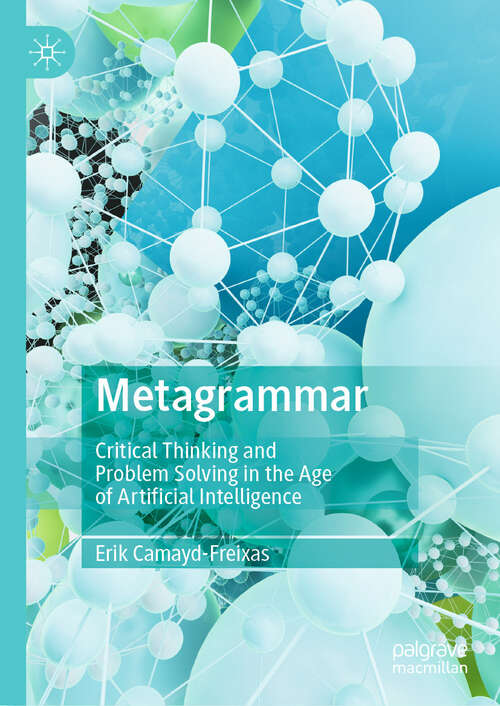Metagrammar: Critical Thinking and Problem Solving in the Age of Artificial Intelligence
By:
Sign Up Now!
Already a Member? Log In
You must be logged into Bookshare to access this title.
Learn about membership options,
or view our freely available titles.
- Synopsis
- This book highlights the grammatical structure of thought and behavior as a blueprint for scientific discovery and innovation. It defines the new concept of metagrammar as the unnoticed transfer of linguistic functions and skills to and from our interaction with the world. Viewing grammar as language engineering, the author argues that metagrammar charts a new mode of reasoning central to critical thinking, problem solving and goal setting in all areas of human endeavor. He shows how metagrammatical structures and genres mediate in the conceptualization of phenomena, as well as in the production of plans, policies, systems and designs. This uniquely human capability is contrasted with mechanistic models in computers and AI that threaten to replace human agency and decision making. This book will be of interest to the educated reader who wants to keep abreast of transformational research in language and cognition as it applies to self and society, current events, digital media and emerging technologies, from artificial intelligence to autonomous systems, from a human-centered perspective. It will be particularly relevant to organizations such as the Modern Languages Association, for its focus on linguistic and narrative theory, cultural studies and critical theory.
- Copyright:
- 2025
Book Details
- Book Quality:
- Publisher Quality
- ISBN-13:
- 9783031923371
- Related ISBNs:
- 9783031923364
- Publisher:
- Springer Nature Switzerland
- Date of Addition:
- 08/14/25
- Copyrighted By:
- The Editor
- Adult content:
- No
- Language:
- English
- Has Image Descriptions:
- No
- Categories:
- Nonfiction, Computers and Internet, Psychology, Language Arts
- Submitted By:
- Bookshare Staff
- Usage Restrictions:
- This is a copyrighted book.
Reviews
Other Books
- by Erik Camayd-Freixas
- in Nonfiction
- in Computers and Internet
- in Psychology
- in Language Arts
